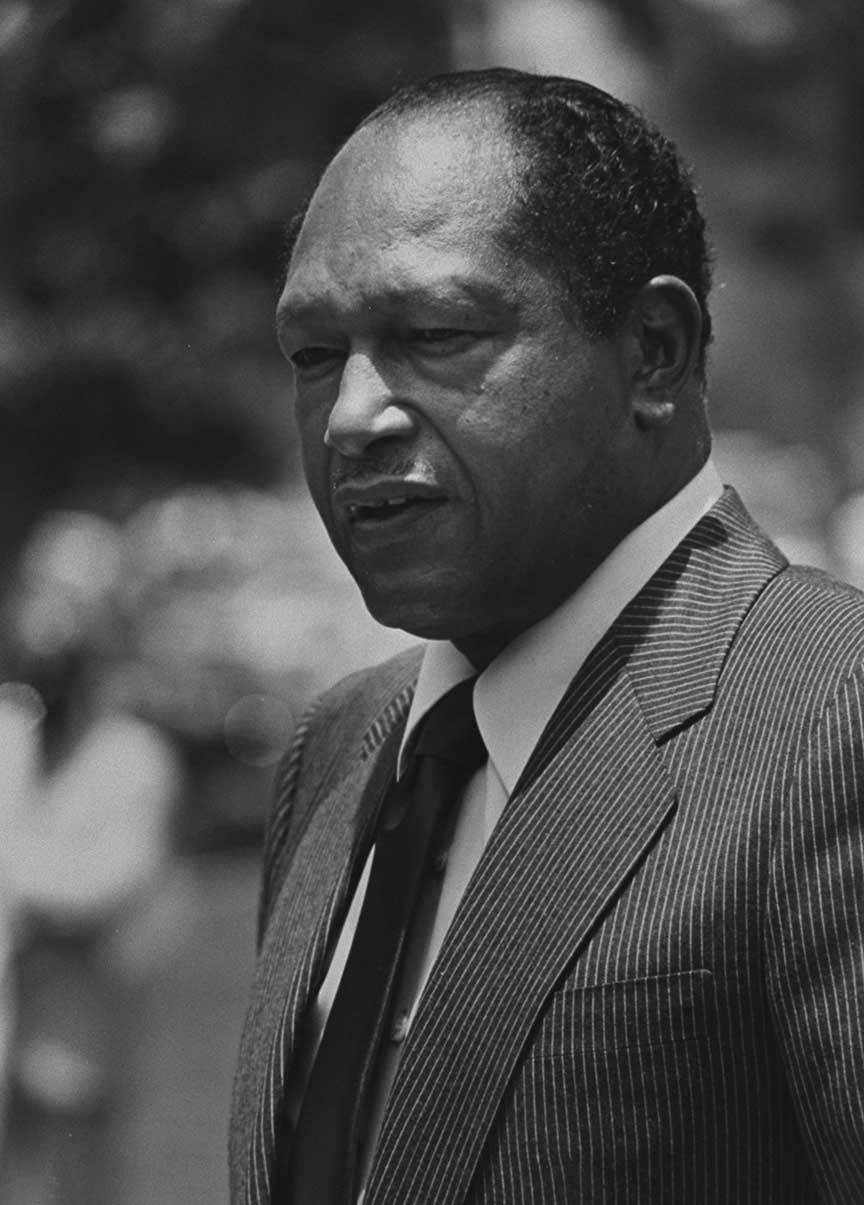1950 Bunche Awarded Nobel Peace Prize

|
Ralph Bunche, an African American diplomat, was awarded the Nobel Peace Prize in 1950 for his pivotal role in mediating the cease-fire between Arab states and Israel during the Arab-Israeli conflict of 1948-1949. His remarkable achievement marked the first time an African American received the prestigious award, highlighting his significant contributions to international diplomacy and peacekeeping.
Born on August 7, 1904, in Detroit, Michigan, Ralph Bunche overcame considerable adversity early in life. He lost both parents by the age of 13 and was raised by his grandmother. Despite these challenges, Bunche excelled academically, earning a scholarship to attend the University of California, Los Angeles (UCLA). He graduated summa cum laude in 1927 and later pursued graduate studies at Harvard University, where he earned a doctorate in political science, becoming one of the first African Americans to achieve this distinction.
Bunche’s academic accomplishments and expertise in political science led him to a career in diplomacy. He joined the United States Department of State in 1944 and later became a key figure in the newly formed United Nations (UN). Bunche’s talents in negotiation and conflict resolution quickly gained recognition, and he was appointed as the principal secretary of the UN Palestine Commission in 1947.
The situation in Palestine was highly volatile following the UN’s decision to partition the territory into separate Jewish and Arab states. This decision led to intense conflict between Jewish and Arab communities, culminating in the first Arab-Israeli war in 1948. As violence escalated, the UN sought a diplomatic solution to end the hostilities and appointed Count Folke Bernadotte of Sweden as the UN mediator for Palestine. Bunche served as Bernadotte’s chief aide and played a crucial role in the mediation efforts.
Tragically, Count Bernadotte was assassinated in September 1948 by the Stern Gang, a Zionist militant group opposed to his proposals. Following Bernadotte’s death, Ralph Bunche was appointed the acting UN mediator. Taking on this challenging role, Bunche demonstrated exceptional skill and perseverance in navigating the complex and contentious negotiations.
Bunche’s diplomatic efforts culminated in the signing of the Armistice Agreements between Israel and the four Arab states—Egypt, Jordan, Lebanon, and Syria—in 1949. These agreements established cease-fire lines, known as the Green Line, and laid the groundwork for a temporary cessation of hostilities. Although the agreements did not resolve all underlying issues, they marked a significant step towards peace in the region and demonstrated the potential for diplomacy in conflict resolution.
For his extraordinary efforts in achieving the armistice agreements, Ralph Bunche was awarded the Nobel Peace Prize in 1950. In his acceptance speech, Bunche emphasized the importance of international cooperation and the role of the UN in maintaining peace. He also highlighted the need for continued efforts towards justice and equality, recognizing that true peace could only be achieved through addressing the root causes of conflict.
Bunche’s Nobel Peace Prize was a landmark achievement, not only for his personal career but also for the broader civil rights movement in the United States. As the first African American to receive the award, Bunche’s recognition underscored the significant contributions of African Americans to global peace and diplomacy. His success served as an inspiration for future generations and highlighted the potential for individuals from marginalized communities to effect meaningful change on the world stage.
Throughout his career, Ralph Bunche remained committed to the principles of peace, justice, and equality. He continued to work with the UN, contributing to various peacekeeping missions and advocating for decolonization and human rights. Bunche’s legacy endures as a testament to the power of diplomacy and the enduring quest for a more just and peaceful world.
 >
>